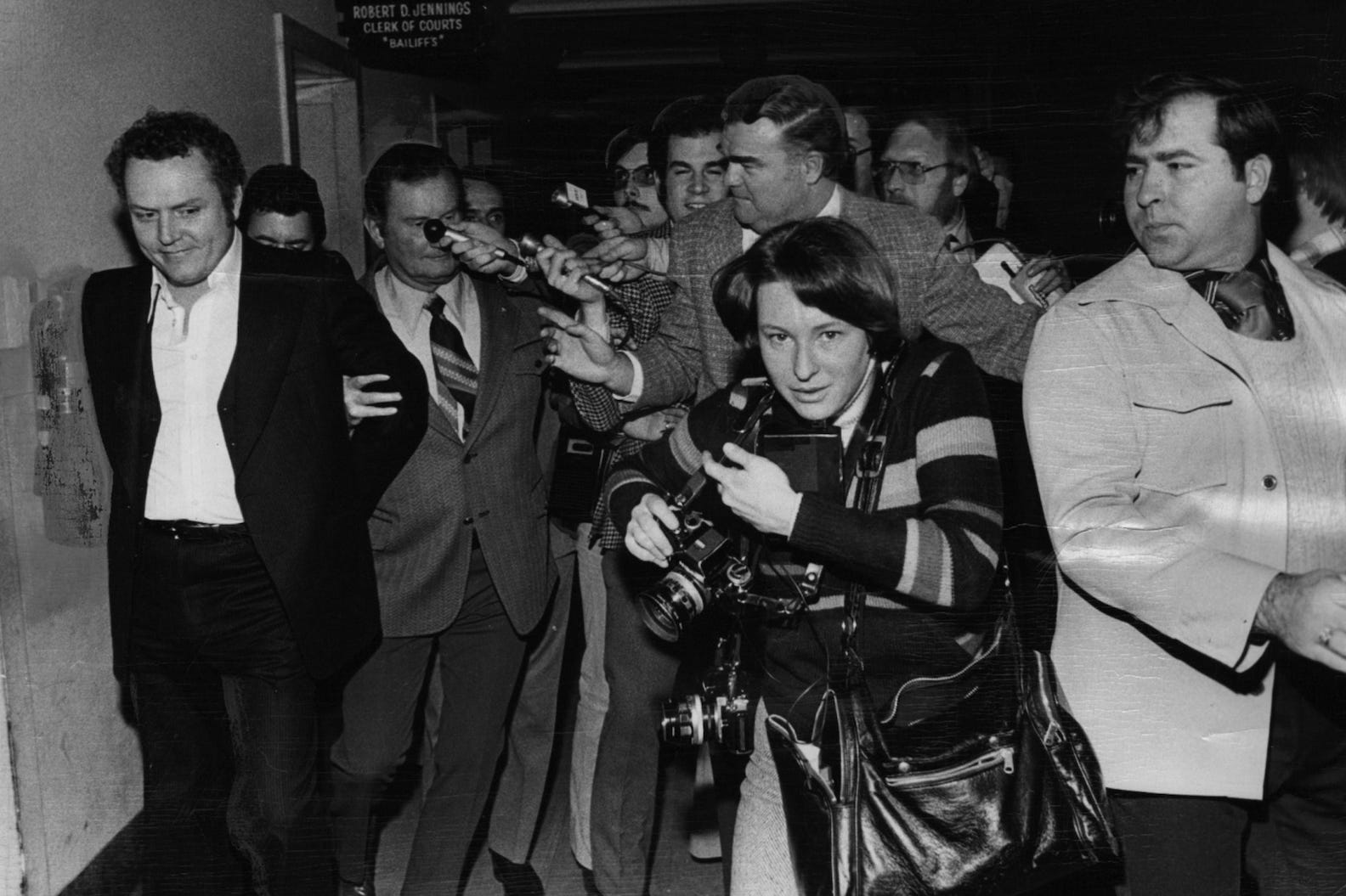
RIP Larry Flynt: How he made a more explicit magazine than ‘Playboy’
Whether you call Larry Flynt a hero or not doesn’t matter to the deceased porn mogul & founder of Hustler Magazine, who died February 10th from heart failure, according to his brother. He told The Chicago Tribune in 1996 he found the title embarrassing, explaining: “I wouldn’t have given my legs for anything or anyone, so I think that disqualifies me for hero status.”
Flynt has a complicated history with his hero title. After spending years defending the First Amendment, he championed the causes of freedom of speech & the press. However, that didn’t come without making enemies. Flynt was headstrong and stood what he believed for until the very end.

Before Hustler
Larry Flynt Jr. was born on November 1st, 1942, to Larry & Edith Flynt in Lakeville, Kentucky. He was the oldest of three. However, his sister, Judy, died of leukemia when he was nine years old. The death tore his family apart: his parents divorced, he lived with his mother, and his brother, Jimmy, lived with a grandmother.
Flynt dropped out of school at fifteen and joined the Army with a phony birth certificate in 1957. After his discharge, he became a bootlegger before joining the Navy as a radar operator. Following his discharge from the Navy in 1964, he went into the bar business and opened several in Dayton, Ohio. From there, he went on to found Hustler Magazine.
Hustler began as a weekly newsletter promoting his strip clubs in Ohio. As the clubs & newsletter grew in popularity, Flynt turned the newsletter into a magazine in 1974.

Hustler’s beginnings
Hustler struggled in its first years. Many wholesalers & distributors were wary of handling it. However, in 1975, Larry Flynt bought nude photos of Jackie Kennedy from the paparazzi and published them in the magazine. Sales skyrocketed from there and made him millions.
Flynt & Hustler enjoyed success throughout the 1970s, with the magazine peaking between 2 to 3 million monthly circulations. However, with the rise of sex on cable television and the increasing availability of porn on DVDs & the internet, circulation significantly fell through the 80s & 90s.
Despite Hustler falling from grace, Flynt and his company Larry Flynt Publications had a diversified portfolio. Beyond the pornographic magazine, the company still owned Hustler strip clubs & stores, selling everything from magazines, porn, and sex toys in a few cities. The company also operated a casino in Gardena, California, and licensed the name internationally to Britain, Australia, Canada, and South Africa.

Legal battles
Running a pornographic magazine in the 1970s was not an easy life, but Larry Flynt welcomed the challenges. It’s what propelled him to become the champion and hero of the First Amendment. However, as he saw it, the First Amendment saved him.
Flynt was first prosecuted for obscenity charges in 1976. Charles Keating, the founder of the Citizens for Decent Literature, brought the case against him & Hustler and led the outcry over the magazine’s pornographic content. Flynt lost and was sentenced to seven to twenty-five years. However, he only served six-days as he won an appeal.
There seemed to never be a moment Flynt was standing trial for obscenity charges. He used these charges to push the First Amendment further. He advocated for freedom of the press & free speech through many trials.

Flynt’s legal battles wouldn’t come without loss. In 1978 while fighting obscenity charges in Lawrenceville, Georgia, a sniper shot Flynt. Later identified as Joseph Paul Franklin, the sniper was a white supremacist enraged by an interracial scene in Hustler of a Black man with a white woman. Despite becoming paralyzed from the waist down from Franklin’s action, Flynt fought against him, receiving the death penalty to no avail.

Hustler Magazine v. Falwell
In Larry Flynt’s most famous case Hustler Magazine v. Falwell, televangelist Jerry Falwell sued Hustler over a parody article about him losing his virginity to his mother in an outhouse. Falwell was seeking damages from “emotional stress” caused by the article. The case went all the way to the Supreme Court, where Flynt won by a landslide.
However, according to Penn State professor & Flynt’s friend Robert Richards told CNN, he could’ve easily settled, explaining, “he could’ve written a $200,000 check like you and I could write a check for $10.” The court decided in an 8-0 decision that because Falwell was considered a public figure and that the satirical piece would never be considered believable by a reasonable person.
“[Flynt] wanted to push [the First Amendment] forward so there would be precedent. He felt that as a publisher he had an obligation to push for advances in the First Amendment,” Richard told CNN.







